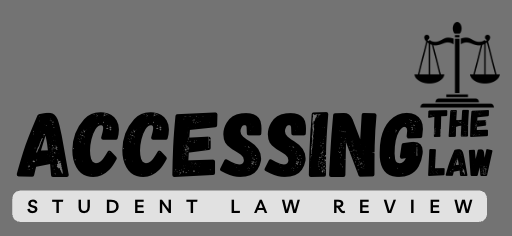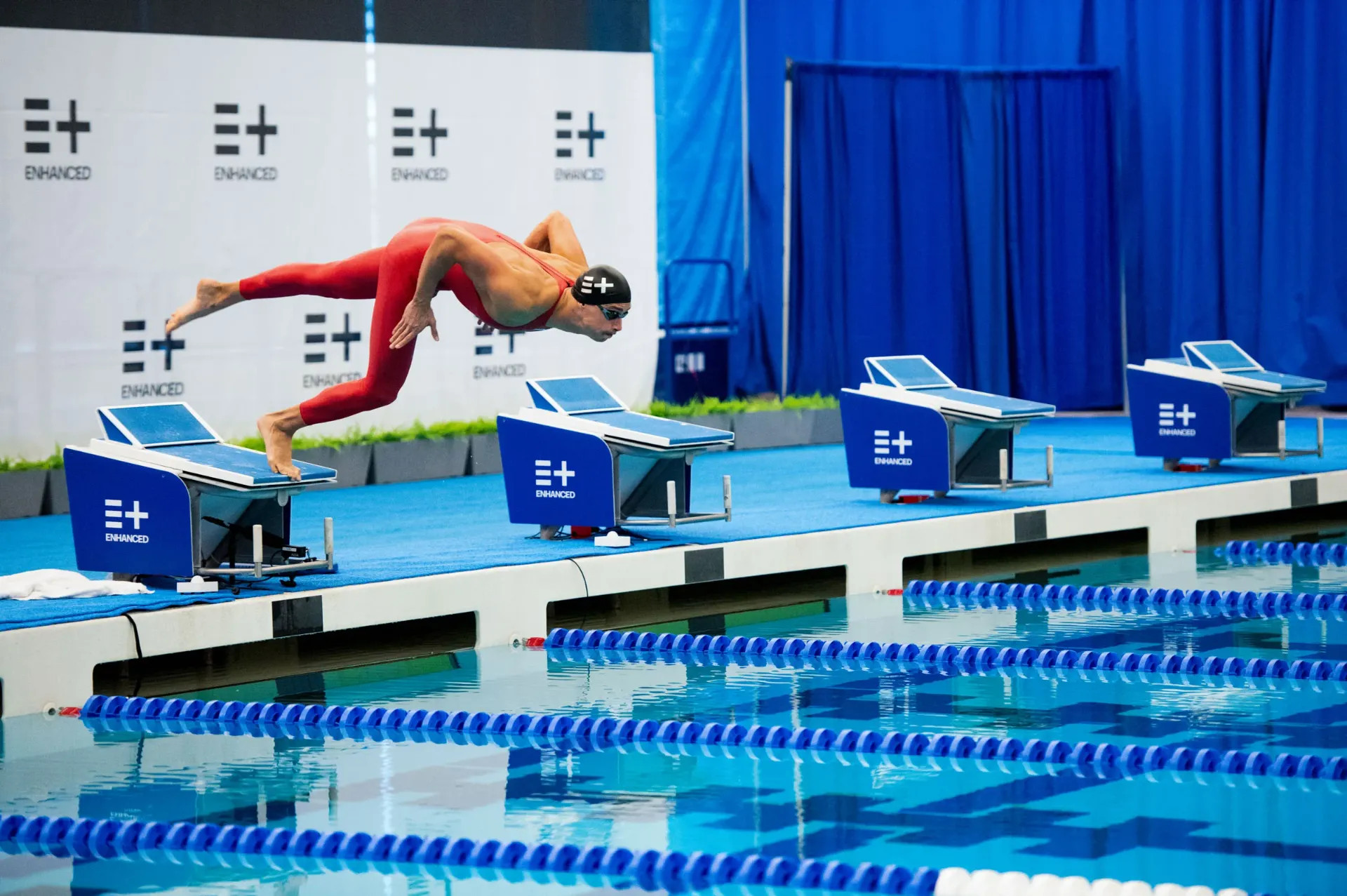Sports Law: Can the Enhanced Games Compete with Law?
Writers: Rhett Hollier, Emma Saylor, Alex Bowels, and Raphael Caballes
Edited by Caroline Staley and Anna Ramesh
What are the Enhanced Games?
In June 2023, Australian Businessman Aron D'Souza publicly proposed a new athletic competition he called the Enhanced Games. The organization invites athletes from all nations to use Performance Enhancing Drugs or PEDs in an attempt to provide more entertaining matches. The World Anti-Doping Agency (WADA), an institution focused on crafting a system of anti-doping regulations for all sports globally, has expressed disapproval of D'Souza's proposition. This calls into question the future of PEDs and their role in athletics on a global scale. Are WADA concerns about athletes' health legitimate or should the use of PEDs fall within the scope of an athlete's individual autonomy, especially in privately organized events? With the Enhanced Games set to take place in Las Vegas, Nevada as soon as May, 2026 it is also important to analyze the space performance enhancers have taken in the American legal system previously. The most notable instance being the 1994 case Long v. NFL in which American football player Terry Long attempted to sue the NFL, the Steelers, and the city of Pittsburgh after his suspension following the discovery of his usage of anabolic steroids: a violation of the private league's drug use policy. Long argued a violation of both the 4th and 14th amendments by way of having been searched without prior knowledge or consent as well as his lack of right to due process, as he was subjected to immediate suspension without further investigation. The Court ultimately decided that in accordance with the state action doctrine, which claims that constitutional limitations cannot be placed on private entities such as the NFL. The primarily financial relationship between the City of Pittsburg and the Steelers was not sufficient enough to equate private actions to that of actions of the state. In short, Long's constitutional violation claims were determined illegitimate given the NFL and The Steelers are private sectors and cannot make actions as an entity of the state. The NFL has the right to test and suspend players in violation of their drug use policy without state interference.
Background
The case of Long v. NFL translates to the discussion of WADA and the proposed Enhanced Games in an interesting way. Given the ruling, Aron D'Souza and the organization currently working to establish the Enhanced Games are operating within the United States legal bounds as a private entity. Regardless of legality, WADA has done its best to warn athletes against participation in PED-integrated competitions as it risks their health and well-being. The organization points to historical evidence of these substances often leading to severe and potentially fatal side effects in its attempts to rally disapproval of D'Souza's competition from a variety of organizations globally. WADA also warns that athletes choosing to participate risk not only violating anti-doping rules but their reputations as well. Governments worldwide are being called on to do all they can to investigate the legality of the PEDs being used by athletes potentially representing their respective nations on the field of the Enhanced Games. Above all, WADA emphasizes that the true value and popularity of sport is derived from fair, drug-free competition, and warns that the Enhanced Games set a negative precedent for young fans primarily.
Long v. NFL was dismissed by the US District Court for the Western District of Pennsylvania, as constitutional protections don't apply to private organizations. Since the NFL is a private entity and its drug testing policies are not mandated by government authority, the court found no state action was involved. The decision was then again affirmed by the Third Circuit Court of Appeals during an appeal further finalizing to ongoing appeal or litigation. Historically, courts find no battery in typical sports contact if informed consent, based on the known risks, is present. However, if leagues design unsafe regimes, that could shift future perspectives on what consent covers in sports. Unanticipated injuries, such as long-term brain damage or PED-induced harm, may exceed the scope. This could make league medical policies at risk of being breached if undisclosed or consented to only in part.
The Enhanced Games has no court case brought against it yet, but private organizers and medical advisors are making decisions surrounding the organization. Anti-doping organizations such as WADA and USADA are speaking out against it, but have no direct power as no athletes are currently under their jurisdiction. Legal precedents set by Long v. NFL have limited government intervention, since the Enhanced Games do not receive public funding or involve state actors, placing them outside the scope of constitutional oversight. The games, however, have faced significant global backlash from more than just the sports community. Doctors have warned that encouraging PED use, even under supervision, would normalize unsafe experimentation on athletes' bodies. PED use has shown effects leading to heart failure, liver damage, and an increased risk of cancer. Sports organizations such as the World Aquatics stepped in well, asserting swimmers would be banned from sanctioned events if they participated. USA Swimming also cautioned athletes, warning of the possibility of sponsorship risk and image damage.
Historical Cases
One important precedent is USADA v. Montgomery, 2007. This case featured the United States Anti-Doping Agency (USADA) and Tim Montgomery who was an Olympic gold medalist in track and field. The case was pressed against Tim Montgomery after suspicions of him using performance enhancing drugs known as "the Clear" while competing in track and field meets, including the Olympics. After sufficient evidence, the Court of Arbitration for Sport (CAS) - the body responsible for adjudicating doping violations in Olympic sports - ruled that Tim Montgomery was guilty of doping throughout his career. This resulted in Montgomery being stripped of his medals and achievements along with a competition ban for two years. Additionally, Montgomery was forced to pay back $1million of his earnings. Another similar case is U.S. v. Barry Lamar Bonds, 2010. This case came after reports of two baseball stars, Barry Bonds and Roger Clemens, were alleged to be using performance enhancing drugs. This was deemed the BALCO scandal as they both were summoned before a federal grand jury to testify, although ultimately both were charged on multiple different charges after their testimonies. The case ended with minor consequences, with Bonds being convicted of a minor charge and Clemens being acquitted. However, after the case, both athletes suffered lasting reputational damage, including the ineligibility for the Baseball Hall of Fame.
Doping is regulated heavily by each national league (NFL, NBA, WNBA, etc.) and, as mentioned, serious health problems that can arise with using performance enhancing drugs. Long v. NFL challenges these national leagues on their punishments against doping, and even federal laws against it. While it's scientifically proven that doping isn't good for athletes short term or long term, Enhanced Games are focused on the rise in popularity of sports – pushing for a space where they can bypass rules set by national leagues and WADA.
Conclusion
With the dismissal of Long v. NFL, there is much ambiguity in where athletes stand with these policies. This case was dismissed because of its mootness regarding the fact that neither blamed parties were state actors and the claims of unconstitutionality at the federal level were also disregarded. The league policies surrounding PEDs leave athletes without certain protections for themselves, like Terry Long. The Enhanced Games has left the public questioning the safety of athletes and the possible effect PEDs may cause on sports. Along with these health risks, the compensation that the Enhanced Games is claiming to provide has not been clarified to the potential participating athletes, leaving them in the dark. Future legislation relating to this case and other concerns amongst this topic may encourage informed consent, medical malpractice, and contract enforceability. Without legislation surrounding PEDs, athletes may be uninformed and ignorant to the full effects of these drugs and may be vulnerable to exploitation by the Enhanced Games. These games and the use of anabolic steroids show what lengths athletes will go to to compete at the highest level of competition. Athletes will always strive to be the best they can whether it is through training or using these drugs to enhance their performance. There is a thin line in maintaining integrity within a sport and balancing expectations from society and from oneself. The idea surrounding these Enhanced Games may provoke society to become informed on the outcome of using these drugs and start having conversations about fairness in competition and the health of these athletes who may or may not be vulnerable to the lack of knowledge of these substances.
Works Cited
Greene, Paul J. "USADA v. Montgomery: Paving a New Path to Conviction in Olympic Doping Cases." University of Maine School of Law Digital Commons. June 7, 2025. https://digitalcommons.mainelaw.maine.edu/mlr/vol59/iss1/7/
Long v. National Football League, 870 F. Supp. 101 (W.D. Pa. 1994)." November. 1994. https://law.justia.com/cases/federal/district-courts/FSupp/870/101/1647872/.
Mayo Clinic. "Performance-Enhancing Drugs: Know the Risks." June 27, 2023. https://www.mayoclinic.org/healthy-lifestyle/fitness/in-depth/performance-enhancing-drugs/art-20046134
Penn State. "Barry Bonds and Roger Clemens." Penn State law. Accessed June 8, 2025. https://pennstatelaw.psu.edu/_file/Sports%20Law%20Policy%20and%20Research%20Institute/2010_Sports_Law_Criminal_Cases.pdf.
Perishable. "What Athletes Need to Know about the Enhanced Games." U.S. Anti-Doping Agency (USADA), May 20, 2025. https://www.usada.org/spirit-of-sport/need-know-enhanced-games/.
U.S. ANti-Doping Agenct. "What Athletes Need to Know about the ENhanced Games." May 16, 2025. https://www.usada.org/spirit-of-sport/need-know-enhanced-games/.

